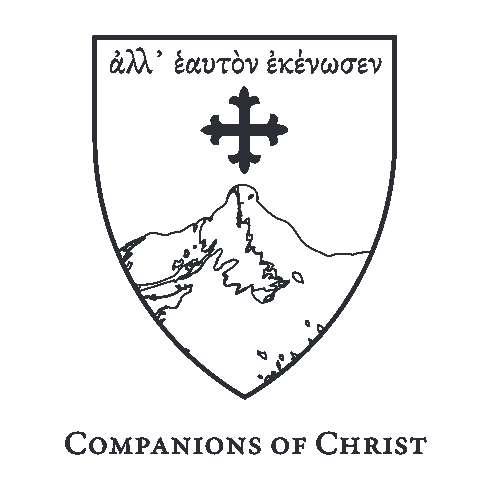Frequently Asked Questions
What exactly are the Companions of Christ? Are you a religious order?
The Companions of Christ is an association of diocesan priests living common life in order to foster priestly fraternity and to help each other live the evangelical counsels suggested for holiness by Jesus.
A religious order is usually built, like the Companions, around the core of community and vows to live the evangelical counsels. Unlike the Companions, however, religious orders govern themselves, have a particular charism, or way of serving the Church, that is unique to their Order, and are not bound to any place but are invited by bishops into their dioceses.
The Companions of Christ is not a religious order. The Companions are diocesan priests who serve their local church under the governance of a bishop and serve in the usual diocesan priestly way, that is, normally in parishes.
What is an association?
An association is technically any group of Catholics who are given permission under Church law to organize, and usually to hold property, for some purpose of serving the Church. The Companions of Christ is a clerical association, meaning that it is made up exclusively of priests that belong to a given diocese.
Why are you doing this?
We have found that many priests benefit on human and spiritual levels from living with other priests. Our particular commitment to living together and supporting each other's attempts to grow in holiness comes from a conviction of each of the members that we can serve the Church most effectively, and encounter Jesus deeply when sharing common life.
Why do you say "Common Life"?
Since we are not a religious order with "community" the way the word is used technically, we often say "common life". This also helps us to talk about shared meals and prayer and activities and commitments among the members who may or may not be living together. The eventual goal is to have Companions priests living in households of three or more at various rectories in the Archdiocese, serving the parish to which that rectory belongs, but also other parishes to which priests would commute. Thus "common life" serves as a useful phrase for referring to the various commitments of Companions within the association.
How did the Companions of Christ get started?
The Companions of Christ was established as an association in December, 2008, in Denver by (then) Archbishop Charles Chaput after the request of four seminarians who had learned this model and taken its name from the Companions of Christ in the Archdiocese of St. Paul / Minneapolis. We each had a shared desire for common life as priests, and to live the evangelical counsels together. Our prayers led us together in 2006, when we began to talk about possibilities and research effective ways of diocesan priestly life that would be helpful to ourselves and our brother priests. The simple, practical model of the Companions in Minnesota, and the witness of Christian unity among their priests helped us to move forward. The association has since grown with seminarians, deacons, and priests; and has proved a great benefit to its members.
Do you expect to grow?
That's up to God. We are certainly open to growth and would not be surprised to see it. There seems to be significant interest toward common life among priests and seminarians these days.
What makes the Companions of Christ different from just a bunch of priests who are friends?
The Companions have events and ways of relating that help to form a particular culture among this group of friends. Celebrating the Lord's Day on Saturday nights, praying and eating together during the week, committing to a common vision for priestly excellence, vacationing together, and gathering to share our spiritual joys and struggles in a bi-weekly fraternal group are some of the more important ways that we help eachother to follow our baptismal call to holiness and our priestly call to service. You could say that our friendship has an expressed purpose: to help each other to become saints.
What are the evangelical counsels? What do they mean for the Companions of Christ?
The evangelical counsels are poverty, chastity, and obedience. These three virtues classically represent full commitment to God. Every Christian is called to give themselves entirely as Jesus' disciples; poverty, chastity, and obedience are the way to that 'given-ness'. All priests have commitments of simplicity, celibacy, and obedience to their bishops, expressions of the evangelical counsels. The Companions of Christ have chosen particular ways of committing to the practice of these virtues, such as: a common rule for tithing and charitable giving, an annual purge of things that we have but don't need, Marian devotion and special prayers for growth in chastity, and shared ideas about how obedience can be lived in the most helpful and deepest ways.
What do the Companions of Christ see themselves doing in ten years?
The Companions of Christ see themselves doing in ten years what we are doing now - but hopefully even better. That is, we see ourselves serving the parishes of the Archdiocese of Denver as holy and happy priests. We are still young and growing, so we look forward to new priestly houses forming around the Archdiocese, and exploring the variety of possibilities for incorporating priestly common life into the great plurality of expectations and opportunities for diocesan priests.

